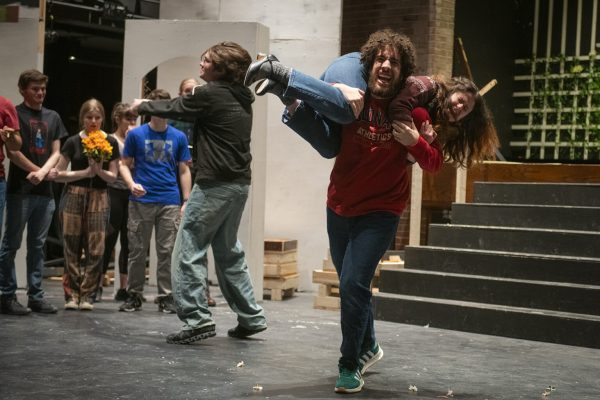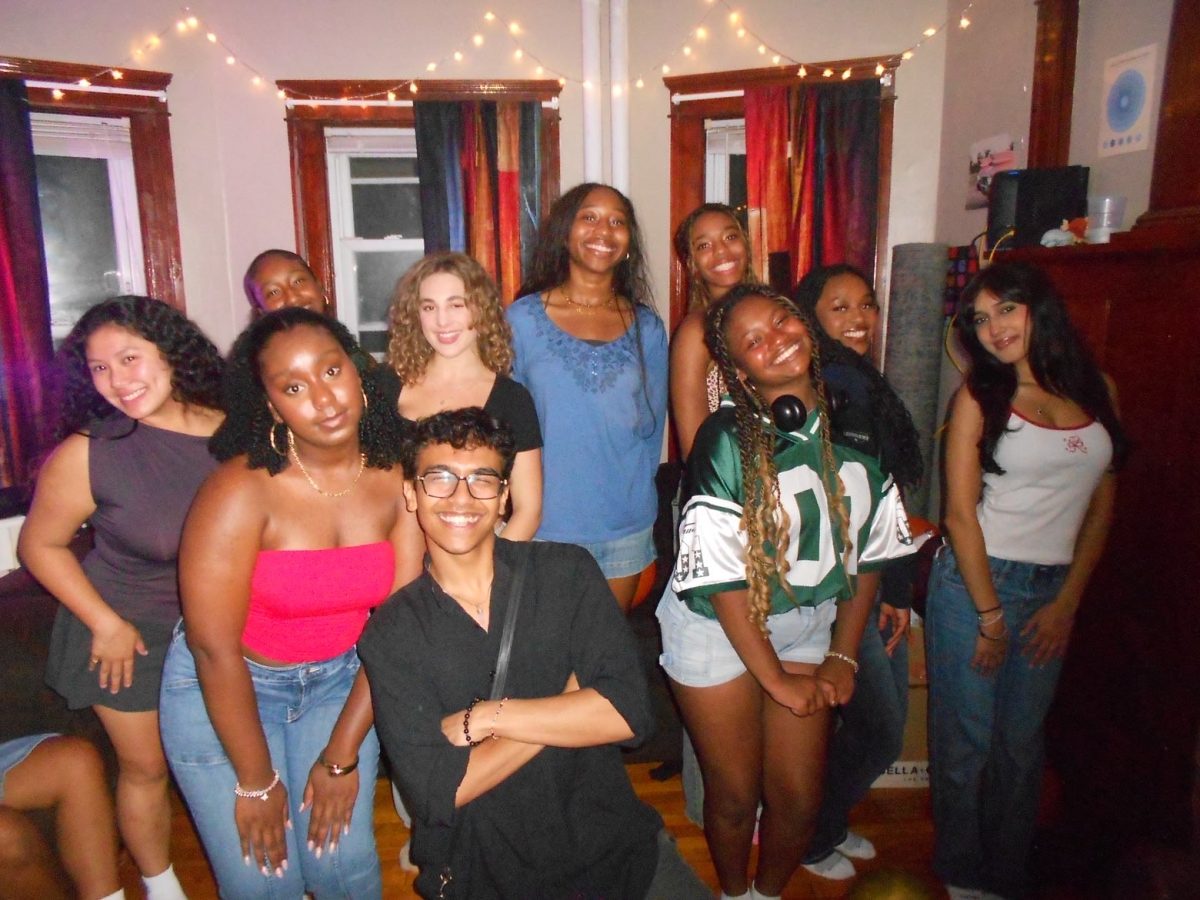On March 13 through 16, Clark University Theater Department put on a production of the Shakespearean comedy “Taming of the Shrew” in the Little Center’s Michelson Theater. Due to its sexist tones, the play is one of Shakespeare’s most controversial works: some people say it reinforces patriarchal gender norms, while others, pointing to the misogyny of Shakespeare’s time, praise it as a subversion and critique of those norms.
The main plot line follows the relationship between a man, Petruchio, who forcibly marries an ill-tempered, rowdy woman named Katherine and “tames” her into an obedient wife. During the first few scenes, Katherine is shown wantonly attacking people and growling like an animal. Petruchio then physically abuses her, deprives her of food and water, and forces her to agree with him that the sun is the moon and other absurd propositions. Nicolas Fasano, the freshman who played Petruchio, says he screamed so much that his voice was “absolutely gone” after every show.
By the end, however, Katherine is shown to be even more obedient than the other female characters, including her younger sister, Bianca. During the final scene, she says she is ashamed that women should “seek rule, supremacy, or sway when they are bound to serve, love and obey” their husbands.
Ultimately, the director, Gino DiIorio, cut this line out of the script.
It is no surprise the theater department had to walk a fine line here. Aziliz DuBois, a senior majoring in English who played Katherine, said in an interview that the misogyny “was one of the things that just had to be accepted” in order to delve deeper into the characters.
DuBois remarked how hard it was to play Katherine. “The ending monologue killed me, destroyed me as a human being—I would pick up the script and I’d look at it and I’d just be like, I just can’t do this.”
Katherine and Petruchio’s wedding, where Petruchio curses God and carries Katherine away on his shoulder when she refuses to leave, was especially hard for DuBois to act. They needed to fall in love with each other by the end so she couldn’t be resisting him too hard. At the same time, DuBois says if that happened on her wedding day, she would get so angry she would pull a machine gun out from under her dress and start killing everyone.

“I am kind of stuck now, and I don’t dislike him, so it’s all good,” DuBois described her interpretation of the wedding.
DuBois was not the only one who found it hard to understand their character. Eva Roux, the actor playing Biondello, went through a new rendition of her character every single rehearsal.
Another interpretation of the play is not of an abusive relationship but of the power of love and devotion. Director and Theater professor Gino DiIorio says it is “a romantic comedy about two people who go against the grain.”
DuBois elaborates on that, arguing Kate and Petruchio “are not at all what they seem. They’re people that, in the grand scheme of society, no one gets. Everyone else fits into a specific role or stereotype, and these two kind of fall outside of this society.”
“They’re freaks to me,” DuBois goes on. “When you find someone that matches your freak to such an extent, you’re willing to change yourself.”
This ‘devotion’ spin is carried over in many “problematic” scenes throughout the play. During the final scene, for example, Petruchio makes a bet with his friends on whose wife is most obedient. After a servant is sent out for each woman, Katherine is the only one who follows through. DiIorio’s interpretation, however, was not about obedience but that it was an inside job: Katherine knew there was money on the table and was working with her husband to make them both rich.
Later in the scene, Katherine puts her hand on Petruchio’s foot in a supposed show of submission. Instead, the actors’ interpretation was a second vow, a second marriage proposal to the one she loved and cared for.
“It’s just what you make of that scene—Whatever you viewed in that performance is how it should be viewed for you,” DuBois explained. “Art is not supposed to be taken any which way. If it were, we wouldn’t still be doing Shakespeare in 2025.”
Perhaps this is most seen in the post-bow credits. Katherine and Petruchio are holding hands. Katherine wants to go one way, but Petruchio wants to go another. They head off stage together in the direction Katherine wanted to go, finally showing that she can still “win” and compromise with her husband. And certainly, there is no more growling.
DuBois reflects on the ending: “Katherine is not tamed… I don’t like the word tamed for Katherine. I think she’s just happier. And happier just means that she doesn’t wanna lash out anymore.”



